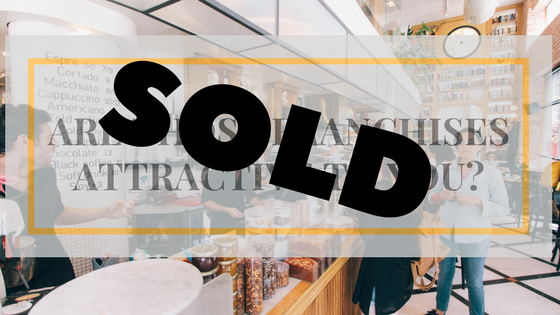After a few years, you have put in significant amount of time and effort into the franchise business. At this moment, you know the inside-out of the operation and build strong relationship with customers. You may think about selling your franchise business.
What are those top 3 things that you need to know?
1- What’s your exit strategy?
Selling a business is the most important decision for a lot of franchisees. But a lot of people are not prepared until the moment that they decided to sell the business.Some franchising experts say “an exit strategy should be thought about from day one.” Why?Because you need to know what are those requirements from franchisors; and you need to know what the steps are to selling your franchise; and most importantly, whether the franchise is “saleable” and it is good timing for sale. Once those questions are piled up, the selling process becomes so stressful.
2- Business-staging
Nowadays, home staging is a big push for closing the house sale. Similarly, successful franchisees have done a lot in advance like maintaining trained staff,stable revenue and clean books and records. All those efforts make the business so saleable.Buyers likely to see an easy,attractive business opportunity instead of unorganized financial data or just a pile of assets.For example, accurate and complete financial statements for at least three years (profit and loss statements and a current balance sheet) is critical. Buyers/valuation professionals rely on those numbers to determine the fair value of the business. In addition, for restaurant business, KPIs are indicators to tell whether it is good buy. Like food plus labor %, in normal business, we should be looking at 50%.If it is lower, it may mean the business runs very well in cost control. As a result, the buyer can build in high expectation in projected profit.
For the sellers,accurate financial statements also help to assess the potential worth of the business. Plan a business-staging well ahead of the time as it will take time to see the result. The more transparent the business is, the higher chance the deal will go through.
3- Types of sales
In general, there are two types of the asset sale and the share sale.
ASSET SALE
The asset sale is often favored by the buyer. By this way,the buyer minimizes the risk exposure of unknowns by only focusing the assets valuation and business opportunity. However,the seller may not prefer as the disposition of assets will result in unfavorable tax treatment in disposed assets, as they are not qualified for capital gain exemption.If the sale is not planned well, the seller may be caught off guard on the potential liabilities. From tax perspective, there are a lot of work required in asset sale.SHARES SALE
As compared, the share sale is more preferred by the seller as the gain on disposition of shares are tax-exempted assuming the business satisfied the qualified small business corporation criteria. To qualify as a QSBC, the company needs to be a Canadian- controlled private corporation and at least 90% of its assets must be used in an active business in Canada. And at the time of disposition of the shares, all or substantially all (90% as per CRA) of the fair market value of the assets must have been used in the active business. Throughout the 24 months immediately preceding disposition of the shares, more than 50% of the fair market value of the assets of the corporation must have been used principally in an active business carried on primarily in Canada by the company. 24 months!!!Business owners need to plan ahead to ensure all the criteria are satisfied. You don’t like to see the CRA comes after you when the deal is closed.
Selling the business is a long process.But don’t need to be that stressing. Plan ahead and talk to your trusted professionals about your idea. Good luck!

Recent Comments